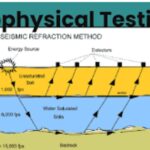Geophysics is a fascinating branch of science that uses the principles of physics to study the Earth. For students looking to explore this field in depth, the Geophysics BS at Western Michigan University (WMU) offers a structured and enriching academic pathway. In this article, we’ll dive deep into the Geophysics BS program at WMU, explore its curriculum, career prospects, and much more. Whether you’re a prospective student or someone just curious about this scientific discipline, this article on Geophysics BS WMU will provide valuable insights. Let’s explore how this degree can shape your future in the exciting world of geophysics.
What is Geophysics?
Geophysics is the study of the physical properties and processes of the Earth. Geophysicists use scientific principles and techniques, such as seismic waves, gravity, and magnetic fields, to understand the Earth’s internal structure, natural phenomena like earthquakes, volcanic activity, and much more. It’s a multidisciplinary field that integrates geology, physics, mathematics, and engineering.
At WMU, the Geophysics BS program equips students with both theoretical knowledge and practical skills, preparing them for careers in energy exploration, environmental protection, and geotechnical engineering. The program emphasizes the importance of understanding Earth’s processes using advanced physical methods to address real-world challenges.
Geophysics BS at WMU: Overview
The Geophysics BS at WMU is designed to offer students a strong foundation in geophysical techniques, theories, and applications. It is an interdisciplinary program that blends the study of geology, physics, and mathematics. The curriculum covers topics such as seismic data processing, electromagnetic methods, and the analysis of geophysical field data. It combines theoretical learning with hands-on laboratory and field experiences to provide students with a well-rounded education.
At Physics Heaven, we often emphasize how important a strong academic foundation is for students interested in pursuing careers in geophysics. The WMU Geophysics BS provides exactly that, with a well-structured program that focuses on both academic and practical learning.
Key Components of the Geophysics BS WMU Curriculum
1. Core Courses and Concepts
Students enrolled in the Geophysics BS WMU program are required to take a variety of core courses. These courses provide a comprehensive understanding of geophysical principles, including physics-based techniques for Earth exploration. Some of the major subjects covered in the curriculum include:
- Seismology – the study of seismic waves and their application in understanding the Earth’s internal structure.
- Electromagnetic Methods – exploring the Earth’s conductive properties through electromagnetic waves.
- Geophysical Data Analysis – utilizing mathematical models and computational techniques to interpret and analyze field data.
- Geophysical Surveying – an introduction to geophysical field techniques used in exploration and environmental studies.
These courses provide a solid foundation in both the theoretical and practical aspects of geophysics, preparing students for professional work in the field.
2. Laboratory and Fieldwork Opportunities
One of the most exciting aspects of the Geophysics BS WMU program is the extensive laboratory and fieldwork opportunities it offers. Students get the chance to apply what they’ve learned in the classroom to real-world problems. Whether it’s conducting seismic surveys in the field or using advanced software to model the Earth’s subsurface, hands-on experience is an integral part of the curriculum.
Laboratory sessions allow students to work with specialized equipment like seismic sensors, magnetometers, and geophysical data analysis software. This practical exposure is invaluable for students aiming to enter careers in energy, environmental consultancy, or research.
3. Advanced Specialization Options
As students progress through the Geophysics BS program, they have the opportunity to specialize in various subfields of geophysics. Some of the advanced specialization areas include:
- Hydrogeophysics – studying groundwater distribution and movement using geophysical methods.
- Environmental Geophysics – applying geophysical methods to environmental protection and management.
- Geotechnical Engineering – studying soil and rock properties for construction and engineering projects.
These specializations allow students to tailor their studies according to their interests and career goals, further enhancing the value of the Geophysics BS degree from WMU.
Career Prospects After Completing the Geophysics BS WMU
The career opportunities for graduates of the Geophysics BS WMU are both diverse and promising. Geophysicists are in high demand in several industries, including energy, mining, environmental science, and engineering. Some of the career paths you can explore include:
1. Energy Exploration
Geophysicists are critical in energy exploration, especially in the oil and gas industry. They use geophysical techniques to locate and assess potential reserves of fossil fuels, such as oil, natural gas, and coal. The skills gained in seismic analysis, geophysical surveying, and data interpretation make graduates of the Geophysics BS WMU program highly sought after by energy companies.
2. Environmental Consultancy
With growing concerns about environmental protection, geophysicists play a key role in assessing and mitigating environmental risks. Environmental consultancy firms employ geophysicists to conduct geophysical surveys that detect contaminants, assess groundwater conditions, and evaluate the environmental impact of construction projects.
3. Research and Development
Another exciting career option for geophysics graduates is research. Whether in academic institutions, government agencies, or private research firms, geophysicists contribute to expanding our understanding of the Earth’s processes. Research-focused careers often involve field studies, laboratory analysis, and the development of new geophysical techniques and technologies.
4. Geotechnical Engineering
Geophysicists working in geotechnical engineering focus on the physical properties of soil and rock to aid in construction projects. They conduct tests to determine the suitability of building sites and assess seismic hazards. The interdisciplinary knowledge acquired through the Geophysics BS WMU program equips graduates to excel in this field.
Why Choose Geophysics at WMU?
Choosing to study Geophysics at WMU provides a unique opportunity to learn from experienced faculty members who are experts in the field. The program combines rigorous academic learning with practical, real-world experience, ensuring that graduates are well-prepared for the challenges of the geophysics profession. Moreover, WMU’s strong ties with the geophysical industry and research institutions provide students with valuable networking opportunities and internships.
For those who are passionate about understanding the Earth’s processes and have an interest in physics and mathematics, the Geophysics BS WMU is an excellent choice for academic and career growth.
Conclusion
The Geophysics BS WMU program offers a comprehensive education in one of the most exciting and essential fields of science. With its focus on both theoretical foundations and hands-on learning, it equips students with the skills needed to thrive in industries like energy, environmental science, and engineering. If you have a passion for physics, mathematics, and the Earth, the Geophysics BS program at Western Michigan University is an excellent path to explore. For more information, keep following Physics Heaven for insights on related topics and career advice.








